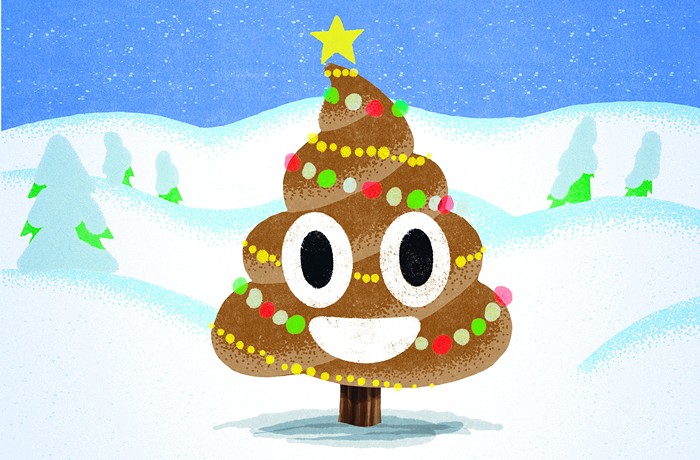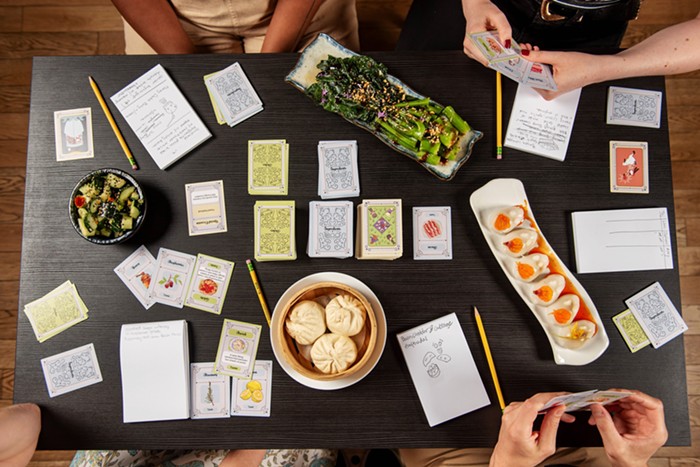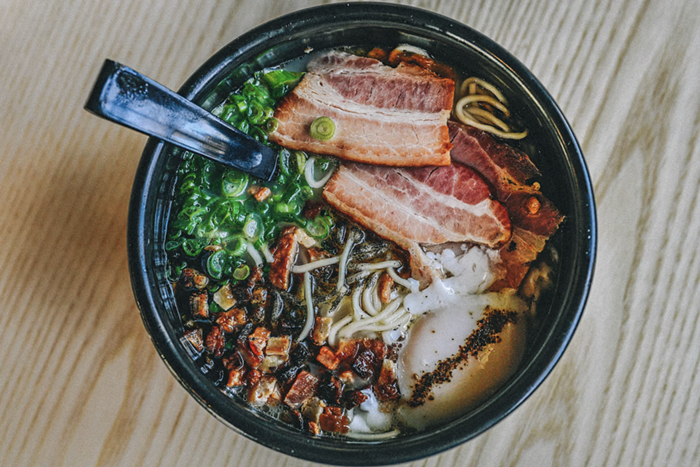ONE DOES NOT necessarily associate farming with intoxication—unless you're particularly fond of a pastoral drunk. For the folks behind Highball Distillery, however, their organic Elemental Vodka is as agrarian as rolling fields of organic wheat.
"Alcohol is an agricultural product," says Highball co-owner Michael Heavener. "There are approximately two to three pounds of wheat in every bottle of our vodka."
Why, argues Heavener and his partner Michael Klinglesmith, would a person worry so much about the source and environmental impact of their meat and potatoes, and yet support big agribusiness with every martini? Well, it could be that before Elemental Vodka there were few other options.
Just over one year ago, Heavener and Klinglesmith received the experimental license that allowed them to turn on their still, a monstrous apparatus designed by Klinglesmith and built by local metal workers.
Each month, Highball Distillery cooks 1000 pounds of organic wheat from Bob's Red Mill with Bull Run water in a giant repurposed soup kettle, ferments the mixture with a non-genetically modified yeast, distills, redistills, and filters the final product; the whole process is powered by the PGE Clean Wind program. The result is 300 bottles of Elemental Vodka and, at least for Heavener and Klinglesmith, the feeling of doing something good for the environment and the region.
It might surprise people that most distilleries, big-time or otherwise, generally don't do it this way. Most begin with bulk neutral grain spirit, which is shipped in, redistilled, filtered, and sometimes infused to become the majority of clear spirits on the market.
Some argue that using neutral grain spirit doesn't affect the end result; others say that it robs a distiller of control over an important step in the distilling process. For Highball, despite being less expensive, using neutral grain spirit was never part of the equation; it was a product of an agricultural system they were trying to avoid, and it certainly wasn't organic.
"It never occurred to us to do it any other way," says Heavener. "This is Portland, so it just makes sense to do it the sustainable way, build our own equipment, and see if the feds will go for it. We never had to change from that."
But honestly, when the standard for vodka is that it be odorless, colorless, and tasteless, does all of this work really amount to higher quality?
"We definitely believe that the quality of the fresh and good wheat that we get has a lot to do with it," says Heavener. "Whether the organic angle has a lot to do with it? I don't know. We certainly don't say the final product is any healthier for your body." For Heavener, the important issue is agricultural sustainability. "It's about the first part of the equation," he says.
But sometimes the first part of the equation gets tough. Recently, Highball has begun creating a vodka flavored with vanilla and espresso, to be released early December. How does a regional, organic minded distillery source vanilla and coffee?
For his part, Heavener is comfortable their philosophy remains sound. "If you run into a problem in Portland for sourcing coffee, then that's some sort of horrible message," he says. "It's a very small quantity."
And the vanilla? "Both ingredients are sourced through local companies in Eugene," Heavener says. But finding organic vanilla beans gave him the biggest problem. "I talked to my certification agency that happened to find one company in Eugene that actually pays to have a farm certified in Papua New Guinea."
For Heavener, it's all part of Highball's plan to use their distillery and product to promote sustainable business practices. "If we succeed, it's an example for other businesses to say, 'Hey, let's set ourselves apart. Let's define Portland as more conscientious.'"
Of course, all this means nothing if the vodka sucks. Luckily, it doesn't. In fact, it's smooth and clean on the palate with slight wheat sweetness. Their flavored product is just as good, with an airy vanilla bolstered and rounded out by toasty coffee tones. Placed beside a product like Absolut Vanilla, Elemental's vanilla and espresso is understated, clean, and far less cloyingly sweet.
In fact, it's likely the best booze with which to toast your favorite organic farmer, or at the very least, one of the best ways to get toasted—organically.



















